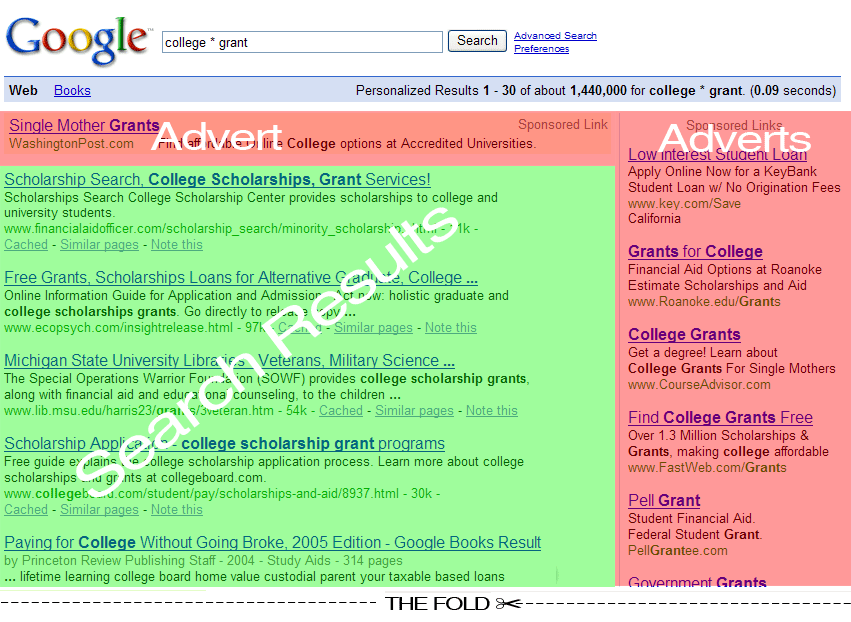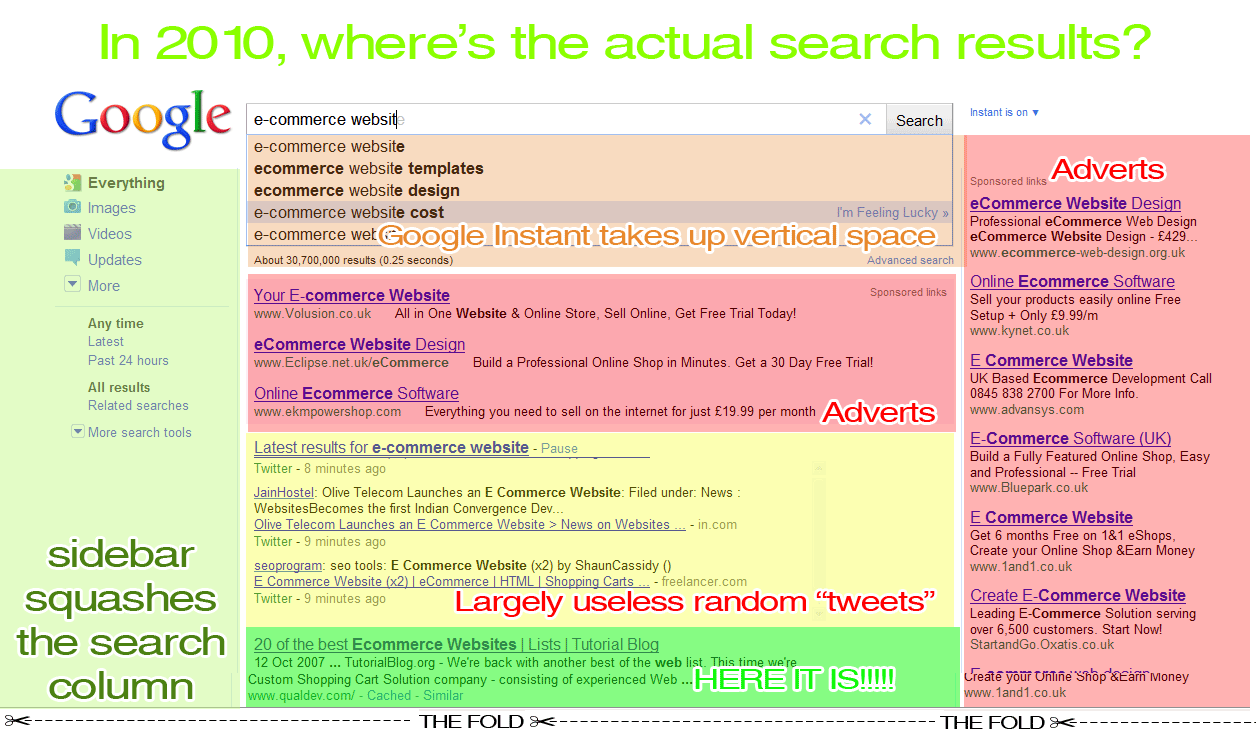posted in search engine optimization on 12 October 2010
by Andrew Lang
View by Categories | View By Latest
Google, Where Are My Search Results?
Google has slowly but surely relegated its actual search results further and further down the page over the years.Actually, in 2010, if you browse in common resolutions like 1024 x 768 or 1280 x 800 you'll barely see the top organic search result just peeking its nose above the "fold" (the top part of the page you don't need to scroll to see!).
Take a look at these screenshots:-
Google 2005 Click to enlarge | Google 2010 Click to enlarge |
To give you a snapshot, the green bits in the above images represent actual search engine results.
You can see in 2005, the results were very uncluttered and easy to read. A simple 2 column layout, and 2 distinct areas for ads. You could see at least 5 results without scrolling in a typical resolution.
In 2010, Google have really cluttered up the results page. Inexplicably they've placed Twitter "tweets" above organic results for the more popular searches.
Couple that with the idea that Google want us to start navigating results with the keyboard and not the mouse, and you can see that Google are not-so-subtly wanting us to stay above the fold and not scroll - thereby giving their adspace a lot more exposure. In effect, if you don't scroll, Google is pretty much an ad delivery engine, not a search engine.
The problem for Google is, most people don't click on ads
For most people, these ads simply get in the way of what they want to find - organic search engine results. It's impossible to know what percentage of search engine users actually click on ads, but there is a general consensus that a small minority of search engine users represent a large majority of ad clicks.Isn't Google's latest mantra about speed? Well actually, back in 2005, it was faster to see the first 5 organic results than it is in 2010.
It's clear that ads represent Google's main source of income, and they are turning up the ad volume to 11 to maintain good quarterly incomes - but it will be interesting to see their search engine market share over the next 12 months.
Share this article:
view my profile on Google+





